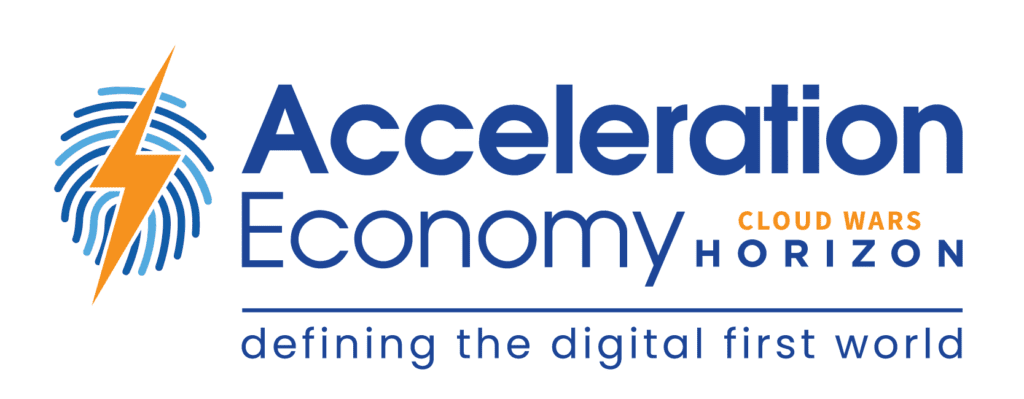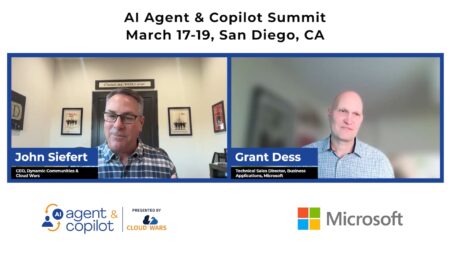Who They Are
Opollo Technologies is quite different than many of the startups we profile on Acceleration Economy’s Cloud Wars Horizon. Consider:
- The company has not yet raised any outside funding; instead, it’s bootstrapping through startup contest winnings, and none of its employees is currently being paid.
- Opollo doesn’t have any paying customers today.
- The company describes itself as a “fintech healthcare AI startup.”
- It was founded and led by a medical doctor who earned his master of business administration (MBA) one year after his medical degree and wrote the original artificial intelligence (AI) code that led to the company’s launch.
- That same medical doctor has yet another fascinating distinction: On his high school football team in suburban Buffalo, N.Y., he backed up the future NFL Hall of Famer “Gronk.”
The CEO, Ryan Young, says he pursued an MBA in addition to his medical degree because it would help if he ever entered medical administration. He also believed it would help him better advocate for patients when business/financial decisions were being weighed in the patient’s medical care.
Then, a couple of other traits added to the case that Acceleration Economy readers need to know about Opollo:
- It’s core value proposition is driving new revenue. It plans to do so by using AI to fix a very real-world healthcare industry problem: getting greater utilization of operating rooms (OR), which are incredibly expensive to operate but often underused because of weak data and poor visibility. It also helps healthcare firms market available operating room (OR) space through an exchange to drive new revenue.
- Opollo was recently accepted into IBM’s Hyper Protect Accelerator for startups, which promises to open doors and ready the company to raise funding.
What They Do
Young developed the core idea for Opollo as an outgrowth of an anesthesiology staff meeting he attended during medical school. The hospital had hired a consultant to improve revenue yield for its surgical suite. It was analyzing data on the time required for certain procedures with specific surgeons.
Young had tinkered in AI development work, and he offered to run surgical data — specifically, one year’s worth of surgeries — through his algorithm to see if it could improve efficiency and boost revenue.
The existing method for analyzing the data was accurate within 10 minutes (plus or minus) about 30 percent of the time; when the Opollo algorithm ran through the same data, it was accurate about 65 percent of the time with the same 10-minute margin for error. That level of accuracy can mean much greater availability and use of an OR — which on average costs $1,200 an hour to operate — and therefore greater revenue.
“If they were using Opollo, that would have been an additional $6 million in revenue generated” while saving $10 million, Young says. The analysis was conducted with a limited data set focused on information about the surgeons and their procedures. Opollo aims to add in additional data including patient-specific information, such as health history or risk factors, that would impact how complicated a procedure may be. With additional data, the company believes its AI algorithm should get to 80 percent or higher accuracy, which, of course, would translate to more revenue.
That’s the big difference between an old-school approach, such as using moving averages of time required for a procedure, versus using an AI engine that can factor in a broader set of data points, sources, and history, as well as add predictive intelligence, to get more precise OR scheduling. Young likened the approach to a GPS or mapping application’s ability to take into account road construction, traffic, weather, and other factors to give accurate forecasts for a car trip.

A couple of other noteworthy points about Opollo’s cloud-based platform:
- It is built specifically to NOT require workflow changes nor changes to existing systems.
- It utilizes natural language processing (NLP) of medical documents to feed data into its AI model.
- It doesn’t store protected health information and adheres to the HIPAA Safe Harbor Deidentification Method
Opollo has also developed a marketplace that connects healthcare facilities with excess OR capacity to insurers seeking to dispatch more patients to efficient, high-quality facilities. “They can do the hard work themselves, increasing their marketing budgets to try to recruit more surgeons, or they can say, ‘Hey, let’s put this capacity up on this OR marketplace,'” Young says. “It’s kind of like an Amazon with an Airbnb twist.”
Opollo’s next steps include ramping up its involvement in the IBM Accelerator Program, which includes training to secure venture capital. It’s also seeking partners and customers to run pilot tests.
The Future and Closing Thoughts
Given the early state of Opollo’s business, things could break in a variety of directions: Its business and product plans could evolve, and customer pilots and projects will have significant influence on where the company goes from here. With plans firmly grounded in an industry-specific challenge, and the core product built specifically to solve that problem, the company appears to be on the right track.
I think you’ll agree this is a company well worth tracking as it grows, expands, and evolves.
And by the way, Young has put his medical residency on hold while he builds Opollo, but he hopes to go into medical practice and put that training into use down the road.
For more exclusive coverage of innovative cloud companies, check out Cloud Wars Horizon here:










